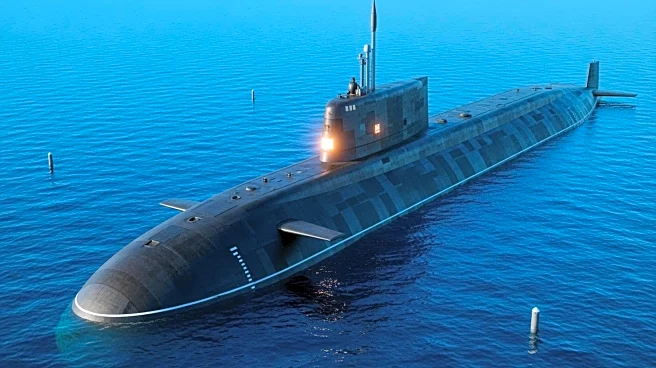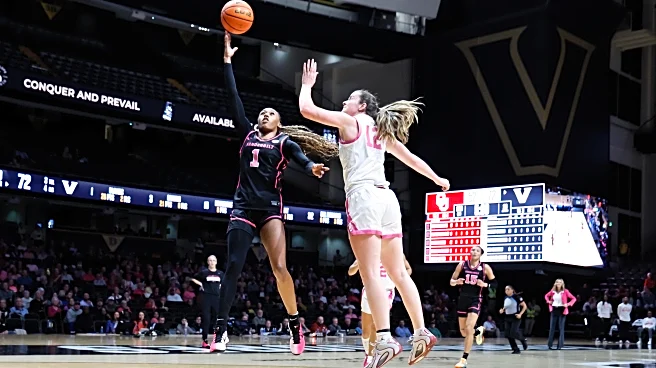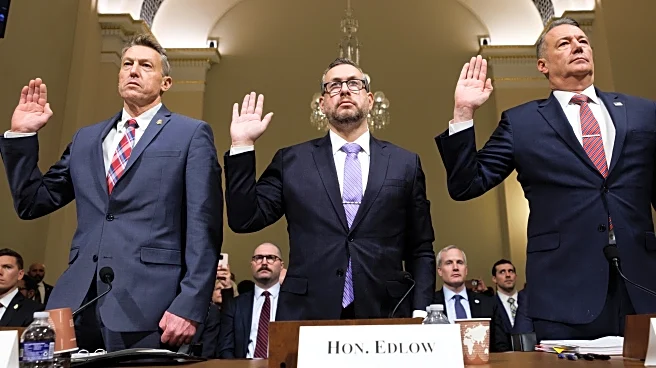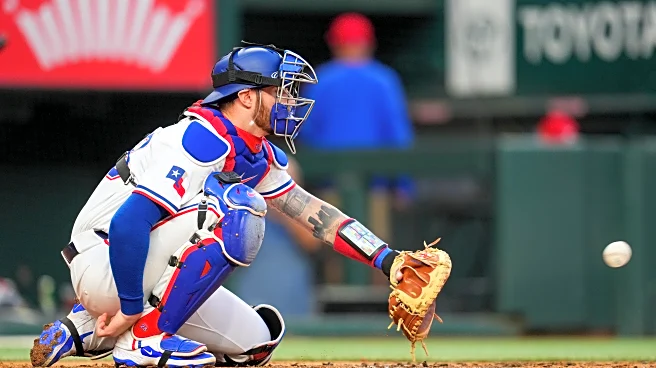What's Happening?
Russian President Vladimir Putin directed strategic nuclear force drills on Wednesday, which included practice missile launches. This exercise coincided with the postponement of his planned summit on Ukraine
with U.S. President Donald Trump. The Kremlin reported that the maneuvers involved all components of Russia's nuclear triad, including the test-firing of a Yars intercontinental ballistic missile from the Plesetsk launch facility and a Sineva ICBM launched by a submarine in the Barents Sea. Additionally, Tu-95 strategic bombers fired long-range cruise missiles. The drills aimed to test the skills of military command structures, simulating procedures for authorizing the use of nuclear weapons, as reported by Gen. Valery Gerasimov to Putin via video link. Although Putin emphasized that the maneuvers were planned in advance, they occurred shortly after President Trump announced that his meeting with Putin in Budapest was on hold, citing concerns about it being a 'waste of time.'
Why It's Important?
The nuclear drills conducted by Russia underscore the ongoing tensions between Moscow and Washington, particularly concerning the situation in Ukraine. The postponement of the summit between President Trump and President Putin highlights the complexities in diplomatic relations and the challenges in reaching a consensus on the Ukraine conflict. The drills serve as a reminder of Russia's military capabilities and its strategic interests in the region. The decision to delay the summit may impact future diplomatic engagements and negotiations, potentially affecting international efforts to resolve the conflict in Ukraine. Stakeholders in the U.S., including policymakers and defense analysts, are likely to closely monitor these developments, as they could influence U.S. foreign policy and national security strategies.
What's Next?
The postponement of the summit suggests that further diplomatic preparations are necessary before any high-level discussions can take place. Kremlin spokesman Dmitry Peskov emphasized the need for thorough preparation to ensure productive talks between President Trump and President Putin. The U.S. and Russia may engage in additional diplomatic communications to address the issues surrounding the Ukraine conflict and to set the stage for future negotiations. The international community will be watching closely for any shifts in policy or strategy from both nations, as these could have significant implications for regional stability and global security.
Beyond the Headlines
The nuclear drills and the postponed summit reflect broader geopolitical dynamics, including the balance of power and military posturing between major world powers. The exercises may also raise ethical and legal questions regarding the use of nuclear weapons and the responsibilities of nuclear-armed states. Long-term implications could include shifts in international arms control agreements and increased efforts to prevent nuclear proliferation. The situation may also influence public opinion and cultural perceptions of nuclear security and diplomacy.











